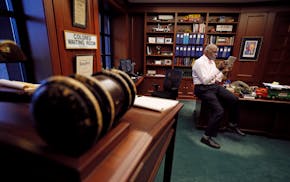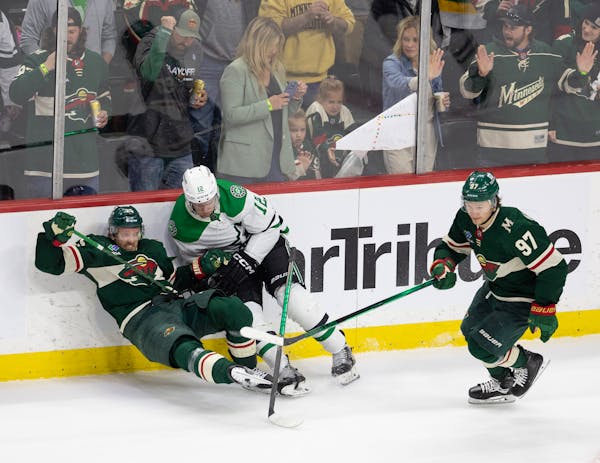A news conference exchange between a reporter and Milwaukee Bucks superstar Giannis Antetokounmpo this past week became a viral moment that drew widespread applause beyond the NBA space.
Asked if the Bucks' season should be labeled a failure after losing in the first round of the playoffs, Giannis delivered an impassioned rebuttal.
"There's no failure in sports," he said. "There's good days, bad days. Some days you're able to be successful. Some days you're not. Some days it's your turn, some days it's not your turn. And that's what sports is about. You don't always win."
Thoughtful answer, but those words are unlikely to generate nods of agreement back here in the self-proclaimed state of hockey. Not today.
The hamster wheel must get exhausting for Wild fans. Forever hopeful that a respectable regular season might lead to something enjoyable in the postseason, only to witness a sobering thud in the first round.
The Wild failed to escape their first playoff series for a seventh consecutive time with Friday's Game 6 loss to the Dallas Stars. The Wild haven't won a series since 2015.
That's not yet on par with the Twins' 18-game postseason losing streak, but the Wild are gaining ground quickly. You need a telescope to view their remarkable playoff run of 20 years ago.
Hockey's inherent randomness levels the field to such a degree that no outcome seems surprising. Upsets happen all the time, if the concept of an upset is even applicable.
The Boston Bruins looked invincible this season with 65 wins. The Florida Panthers won 23 fewer games but have pushed the Bruins to Game 7 in their first-round series.
The beauty of the NHL playoffs is their unpredictability, and yet the Wild operate with steadfast monotony. Get in, get out.
"We grind all the way to get to the playoffs and we can't get out of the first round again," alternate captain Marcus Foligno said. "Broken record."
The maddening part is that common themes reappear. Scoring droughts. A lack of timely goals. A failure to step on the opponent's back when presented the opportunity. Epically bad special teams.
They have lost to better teams in the playoffs, for sure, but too often the Wild's undoing is self-inflicted. Their performance doesn't meet the moment.
"Sick to my stomach about it," veteran Ryan Hartman said. "This city deserves better than what we gave them."
It's easy to explain away any one playoff series, but when lumped together — seven in a row without advancing — the sum forms a team's identity. This is who they are.
The organization has cycled through general managers, coaches, rosters. The Wild's style last season revolved around high-scoring offense. They morphed into a physical, bruising team this season. Same outcome.
"Our special teams again let us down," coach Dean Evason said. "Have to dive into that again."
The immediate question is whether General Manager Bill Guerin will stay the course with this coaching staff intact or demand changes.
Evason has piloted the team to four first-round series losses. The Wild held 2-1 leads in the two most recent series, only to lose three consecutive games. The Stars are not a vastly superior team. They just played better and coached better. Wild players looked emotionally flat throughout the final two games.
Guerin is a no-nonsense executive. He was unhappy with his team's special teams in the playoffs last season, and he likely had steam coming off his head watching the ghastly performance in that area against the Stars.
The team's salary cap hellscape forces Guerin to be creative by limiting his flexibility, but another hasty playoff exit requires action of some kind.
Fans aren't asking for much. Just winning a single playoff series would be enough to transform West 7th into Bourbon Street. The team's annual lament of would've, could've, should've has grown tiresome.
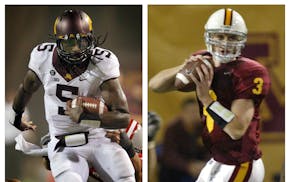
Former Gophers football standouts embrace being basketball dads
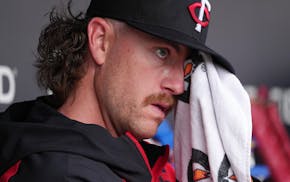
Reusse: Once-formidable Twins starting rotation vulnerable without López
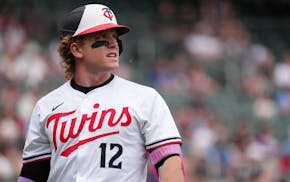
Twins lose second in a row to Blue Jays as bullpen falters late
What is the 'House settlement,' and what does it mean for the Gophers and NCAA?
